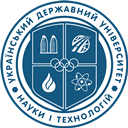DEPARTMENT OF INORGANIC SUBSTANCES AND ECOLOGY
The training of engineers-technologists for the chemical industry was started at the Mining Institute in 1925 on the initiative of academician L.V. Pisarzhevsky, where from 1929 there was a department of technology of inorganic substances. In 1930, the first 18 inorganic engineers were issued from the Department.
Over 75 years the department has trained more than 2900 engineers in the specialty “Technology of inorganic substances”. The first graduates of the department participated in the formation of the chemical industry in the former USSR, as well as in Ukraine. In the prewar years, they participated in the construction and commissioning of such large chemical enterprises as Dneprodzerzhinsky Nitrogen Plant (now DniproAzot), Gorlovka Nitrogen Plant (now PJSC KontskornStirol) and many others.
The Department was headed by such prominent scientists as: Doctor of Technical Sciences, Professor A.V. Baranov (1938 – 1958 gg.); candidate of technical sciences, professor S.N.Hanza (1958 – 1981); Doctor of Technical Sciences, Professor V.D.Parkhomenko (1981 – 1984); Doctor of Technical Sciences, Professor P.N. Tsybuliov (1984 – 1990); candidate of technical sciences, professor B.I. Melnikov (1990 – 2010), Doctor of Chemical Sciences, Professor V.M.Nabivach (2010 – 2011), Doctor of Technical Sciences, Professor O.A. Pivovarov (2011 – 2016).Since the end of 2016,the Department is headed by Doctor of Technical Sciences, Professor Viktor H. Vereshchak.
Long-term scientific activity of professor A.V. Baranov and the staff of the department were connected with the problems of intensification of technological processes and the development of new ways of the production of bound nitrogen. Particular success has been achieved in improving and intensifying the production of nitric acid.
1960, under the direction of Professor S.N. Hanza, the staff of the Department developed theoretical foundations and technologies for the production of nitrogen fertilizers, as well as engaged in the problems of industrial waste treatment and regeneration.
In the field of theory, new directions have been developed. One of them is the kinetics of chemisorption processes under highly turbulent conditions. Associate Professors of the Department L.N.Mamon and M.I.Lokshyndeveloped the design of horizontal and vertical mechanical adsorbers with a large number of revolutions.
The theoretical and applied developments of the THP Department have made it possible to create technological processes and apparatus for the production of nitrogen fertilizers, as well as to clean up the gas and liquid wastes of the industry, converting them into cost products for the national economy. Therefore, for example, new types of fertilizers were developed: carbon-amines (together with the East-Donin Chemical Chemical Plant); nitrogen-huming with the simultaneous purification of gases from nitrogen oxides; poly-microfertilizers from waste products of zinc bleaching and manganese sludge, etc.
The scientific direction on the processing and recovery of industrial waste was the basis for opening a new specialty “Technology of Recycling of Secondary Materials and Environmental Protection” in the department in 1974, which later became a specialty “Environmental protection and rational use of natural resources”, then “Industrial Ecology “And now -” Ecology and the environment “. This specialty prepares engineers-environmentalists of a wide profile who are able to solve the environmental problems of any production. In total about 700 specialists have been trained.
A very fruitful scientific direction is the study of plasma-chemical processes in inorganic substances technology, begun back in 1960 under the direction of Professor S.N. Hanza and continued by Professor V.D. Parkhomenko. He created the School of Plasmochemistry. Under his leadership, 29 dissertations were prepared and defended, including 4 doctoral (P.G.Soroka, Yu.I. Krasnokutsky, O.A. Pivovarov, P.N. Tsybuliov).
The works on plasmochemistry are devoted to fundamental developments in the field of thermodynamics and kinetics of high-temperature reactions, the synthesis of inorganic substances with the directed formation of metastable structures of materials in plasma conditions, which provide special properties. These materials include compositions for the preparation of catalysts, structural ceramics (radio, bio, superconducting, etc.), ferrites, ferromagnetic materials for recording information, etc.
The works of the Plasmochemistry School of the THP Department are well-known abroad, many of them were reported at international conferences and symposia in Canada, Japan, Holland, and Italy.
Now the department has a creative team of teachers and scientists, among them three doctors of sciences – professors V.G. Vereshchak, O.A.Pivovarov, V.M.Nabivach, Doctor of Science, Associate Professor V.S. Hevod, 14 candidates of sciences, associate professors, 2 candidates of science assistants who perform educational, educational, methodological and scientific work. In the conditions of the formation of Ukraine as an independent state, the transition to market relations and in connection with the new requirements of production, the Department has started the training of chemists-technologists in the field of “Technology of rare and scattered elements and materials on their basis”since 1999.
Since 2018, the Department has opened a new specialization “Technology of water treatment and water purification”
